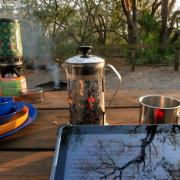“Work”
Sometimes, the barest mention of this four-lettered word is enough to evoke a strong reaction. It is almost instantaneous: our legs tense up and we forget to breathe when we think of that irritatingly overbearing coworker or that unfinished task.
Then there are times when we simply cannot stop thinking about work. We worry about it, constantly overthink and cannot get our mind off it – even when we are done with the work-day.
You may have noticed that this happens more often after a particularly long or stressful day. The reaction you have is normal, there is nothing wrong with you, but it also is a clear indicator that you are taking work home – and I don’t mean ‘work’ but ‘work-related stress’.
Problem is, our lives are so fast paced that we live them in a daze and are constantly distracted – and work-related stress aggravates it. We are constantly complaining about not having enough time on our hands. But even when we do get our precious leisure time, we are unable to enjoy it.
That happens because we forget to take time out for ourselves and work on our mind, body and soul. When we return from work, our minds are fatigued and in need of relaxation. But rarely do we give ourselves the break we are desperately in need of.
So how do we leave work at work? How do we demarcate between work time and pleasure time? And how do we get our minds to ‘be calm’?
There are ways to do that and I will be expanding on those in this article. You may find some of these tips helpful others may not work out so well for you. That’s alright though feel free to pick and choose or add to these techniques. Eventually you will settle into a post-work routine that works best for you.
So without further ado, lets dive right in!
- Cultivate Mindfulness
If you find yourself fixating on work-related dilemmas after a difficult work-day, worry not because there are ways to calm your mind down and let go of your worries. Some people find mindfulness exercises helpful.
Mindfulness is the psychological process of redirecting your attention to what you are experiencing in the present moment. Through mindfulness meditations, you can detach from everything else and focus on the ‘here and now’, the present. There’s an interesting rationale behind it; to pay undivided attention to the present, you must let go of all your anxieties about the past and the future (yes that includes work too!)
The best thing about mindfulness exercises is that they are not rigid. You could try deep breathing exercises in which you settle down comfortably, simply focus on the rhythm of your breath and then inhale deeply and exhale from your belly. If these don’t work for you, you could try guided relaxation techniques that involve progressive muscle relaxation. Yoga is another mindfulness practice that yields satisfying results and if stretches don’t work for you because you are physically tired, there are always good old meditation exercises and visualisations that you can rely on.
- Find Comfort in Your Surroundings
Personalising your space and making it comfortable is extremely important. Most of us spend almost half of our day at work or in public spaces where we are constantly monitoring our body.
Our huts, humble as they may be, are a safe haven for our bodies. For most of us, our space is the only place where we don’t have eyes on us and we don’t have to police our bodies. In short, our dens are the only space where both our mind and body can be at ease.
So, it makes sense to put in some effort and personalise our space, according to our tastes and interests. Create a relaxation corner for yourself and make a little shrine that reminds you of all the things you enjoy doing. Toss a few cushions down and light some candles after you come home from work. If you love reading, have some books around, if you like painting get your palette out, whatever works best for you.
You may also want to look into aromatherapy, an alternative healing method that makes use of essential oils to promote physical and emotional well-being. Scents are powerful because they have a bearing on our emotions and memory. This occurs because olfactory bulb, the part of our brain responsible for detecting odour connects with our hippocampus and amygdala -which are parts of the brain that are responsible for emotional regulation and memory.
So, airing the house and lighting your favorite incense stick may help you unwind and get comfortable in your space.
- Dig Out Your Earphones
Music lovers do not need me elaborating this point but for the rest of you, music can also change the way you feel.The kind of music you listen to can make you more alert or help you relax so making a post-work playlist is a great idea.
If, for instance, you opt for fast and upbeat music, you will feel awake, focused and positive. If you prefer music with a slower tempo, that’s okay too. Slow music can help you relax your muscles and calm down your mind. Even sad music has its own function; it can help with catharsis and serve as an emotional outlet.
Music targets certain parts of the brain and promotes the production of brain chemicals such as dopamine; a neurotransmitter responsible for our happiness on a molecular level and oxytocin, a hormone that helps us bond, feel good and trust others.
One of the best ways to relax is listening to natural sounds. According to research, listening to natural sounds attunes your mind by steering it away from inside thoughts and anxieties to external sounds and your environment.
Get started on that playlist already!
- Oils
Yes, we are talking massage oils, topical salves and supplement oils. Herbal oils are a great way to relax and besides, who doesn’t enjoy rub-downs?
Also, its okay if you cannot splurge on a spa or have nobody about to give you a relaxing massage. You can always give yourself a mini-massage by applying pressure on where your neck meets your shoulders for 10 seconds. Use your fingers to press there firmly and then slowly move them about in a circular motion.
This massage is perfect for taking the strain out if work requires you to sit for prolonged durations. If you want to make it extra special, you can use an organic CBD balm. Cannabidiol (CBD) oil is great for pain relief because it is packed with active compounds that reduce inflammation.
Another amazing property of CBD oil is that it regulates mood, tackles insomnia and promotes a healthy appetite. So, if you work won’t let you sleep, you can try ingesting this wonderous oil right before heading to bed.
Another power blend is black seed oil combined with CBD oil. Black seed oil, derived from the seeds of Nigella Sativa plant (also known as the ‘blessed seeds’), also has anti-depression, anti-anxiety and anti-fatigue properties. Together, black seed and CBD oil work in conjunction to reduce inflammatory pain, mood swings and lethargy. This oil combo might also help you relax and beat sleepless nights.
Before going to bed, simply take half a teaspoon of black seed and CBD oil blend, swish it around in your mouth for about 30 secs and then down it with a big gulp of water.
Baby Steps!
Test and try these methods, see which activities suit you best and incorporate them in your post-work routine. Feel free to experiment and add more comforting techniques to this list. If its knitting that calms you down, go for it! If you enjoy taking long walks, include them too. The point is to take time out for yourself, let go and focus on the present.
You may face some difficulty at first but, remember, relaxing is a learnt skill and as with all learned skills, consistency and practice is the key so keep on taking baby steps and you shall be rewarded!














Comments